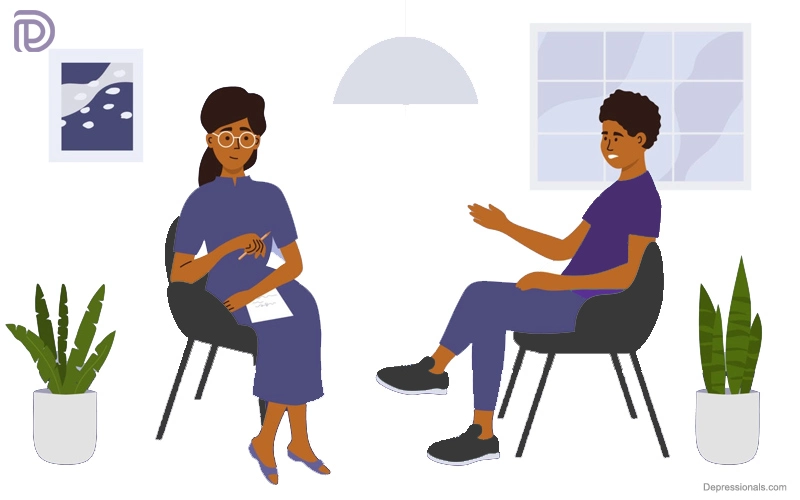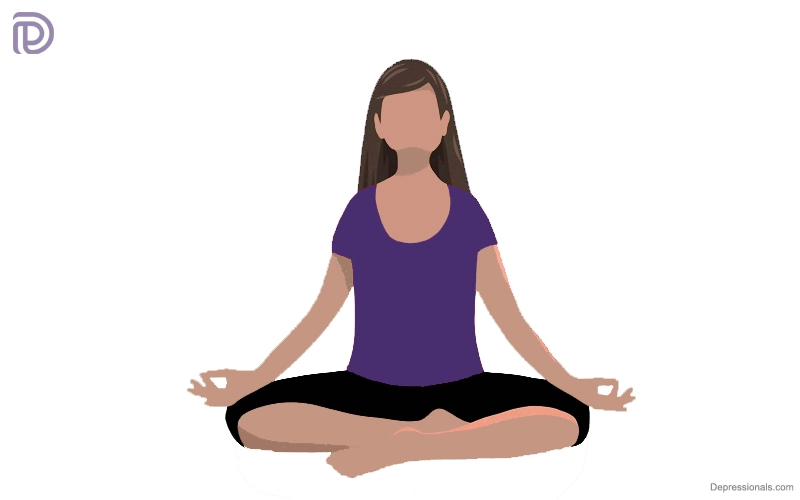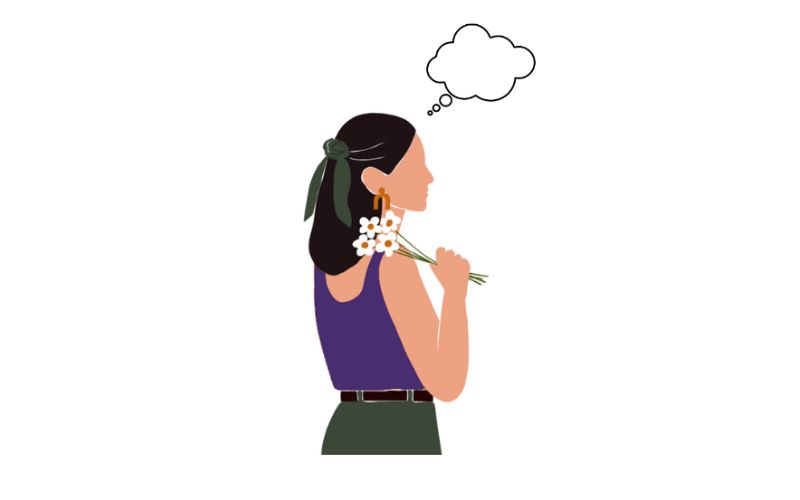Psychotherapy is a general term that refers to a process that uses verbal and psychological techniques to treat psychological disorders and mental distress. This process involves the client being assisted by a trained psychotherapist in the identification, treatment and prevention of specific or general problems, such as a particular mental disorder or a source of stress.
There are many techniques and strategies that can be employed by the therapist, depending on his or her approach. Most types of psychotherapy require the development of a therapeutic relationship, communication and collaboration, and working to change problematic beliefs or behaviors.
The field of psychology is becoming more and more recognized as its own profession, but there are lots of people who do it, including clinical psychologists, psychiatric nurses, marriage and family therapists, social workers and mental health counselors.
The article describes the various forms of psychotherapy that are available, as well as the potential benefits of psychotherapy. There is also discussion regarding the variety of conditions it can be used to treat as well as its effectiveness in managing a variety of illnesses.
Read: How to Get Peace of Mind
Types of psychotherapy
Psychotherapy can be approached in a number of different ways and styles. These will be discussed in more detail in the following sections.
Cognitive behavioral therapy
Cognitive behavioral therapy (CBT) helps individuals understand the connection between their thoughts and behaviors, and how these can impact their feelings and behavior.
People can benefit from CBT for many reasons, including:
Interpersonal therapy
People learn to communicate and express themselves more effectively under this approach. This can allow them to build and maintain healthier relationships. Similarly, if a person feels neglected and becomes angry, this may cause others to react negatively. Consequently, they may feel depressed and isolated.
In order to manage interpersonal problems more equitably, the individual must understand and modify their approach.
Psychodynamic therapy
People’s behavior and thoughts can be influenced by the experiences of their childhood. Psychodynamic therapy looks at how past experiences, including those during childhood, can influence the present. It is very common for people not to be aware that their past experiences are even having an impact on the present.
The ability to identify these influences helps people understand the causes of their feelings like anxiety and distress. Once the psychotherapist identifies these sources, he or she can help the person deal with them. It will help the person feel more controlled over their life.
Analyses like this are less intense than psychoanalysis.
Read: Applied Behavior Analysis (ABA)
Family therapy
During family therapy, members of the family can:
- Describe their viewpoints
- Examine difficult emotions
- Get to know one another
- Identify strengths
- Solve problems
Families or young people experiencing difficulties can benefit from this kind of therapy when resolving problems. According to one article published in 2019, family therapy may be beneficial for adolescents suffering from mental health problems. Additionally, it could enhance parenting skills and family cohesion.
Psychotherapy can also take the form of relationship therapy. The process is very similar to family therapy, but instead of going to therapy alone, individuals may choose to come to therapy with their partner.
Group therapy
It is typical for a group therapy session to consist of five to fifteen individuals with similar concerns, such as:
- Depression
- Chronic pain
- Substance misuse
Individuals may also attend one-on-one therapy sessions during the 1 to 2 hours of group meetings every week. It’s beneficial for people to interact with the therapist, as well as with others who are going through similar experiences. People will also be able to support each other in a group setting.
People can realize that they are not alone with their problems when they participate in a group, even if it seems intimidating.
Read: Shared Psychotic Disorder
Online therapy
Online therapy, also known as telehealth, is increasingly popular among people. Telehealth can be particularly helpful to people who:
- Mobility issues
- Unable to locate a specialist nearby
- Finding therapy difficult
- Feels uncomfortable speaking face-to-face
Tools such as video conferencing and messaging are available.
The growing use of online services has “normalized” psychotherapy and has helped it integrate more easily into daily life. However, a person should choose a service provider carefully before choosing it.
These factors should be considered, for example:
- Qualified and experienced therapists
- Security measures in place by the provider
- Psychologists who are connected to professional associations run the company
Other types
Psychotherapy can take many forms, including:
- Animal-assisted therapy
- Creative arts therapy
- Play therapy
Read: Opioid Use Disorder
Techniques
Many people imagine a therapist sitting in a sunny chair jotting down notes on a yellow notepad while a patient is lying on the couch talking. There are numerous psychotherapeutic techniques and practices.
Each case can require a different treatment approach, depending on the therapist’s training and expertise, the client’s preferences, and the exact nature of the issue being addressed. These three types of therapy are briefly described below.
Behavioral therapy
Conditioning techniques began to play an increasingly important role in psychotherapy during the early part of the 20th century when behaviorism became more popular.
Some of behaviorism’s methods may not be as popular as they used to be, but they remain very popular today. The behavioral therapy is commonly used to assist clients in altering problematic behaviors using classical conditioning, operant conditioning and social learning.
Cognitive behavioral therapy
Behavioral therapy (CBT) involves helping patients understand the thoughts and emotions that influence their behavior. There are many conditions that can be treated using CBT, including phobias, depression, addictions and anxiety.
Behavioral and cognitive techniques are used to change negative thoughts and maladaptive behaviors in Cognitive Behavioral Therapy (CBT). Approaches such as these help people to alter their thoughts that contribute to distress and modify the actions they take as a result of their thoughts.
Read: High Functioning Anxiety
Cognitive therapy
Psychology also changed as a result of the cognitive revolution of the 1960s, as psychologists began paying more attention to how thinking affects the way we behave and function.
You will probably be in a gloomier mood and pessimistic if you always look for the negative in every situation.
Cognitive therapy aims to identify the distorted thinking patterns that lead to such behavior and change them with more realistic and positive thinking patterns. The result is an improvement in mood and overall well-being.
Our thoughts play a powerful role in how we feel about our mental well-being, which is the basis of cognitive therapy.
Humanistic therapy
The humanistic psychology school of thought emerged in the 1950s and began to influence psychotherapy. Based on his method of client-centered therapy, which focuses on unconditional positive regard for the client, humanist psychologist Carl Rogers developed the concept.
It is still widely used in parts today. Humanistic therapy emphasizes self-exploration, free will, and self-actualization as a way to help people develop their full potential.
Psychoanalytic therapy
It is important to note that psychotherapy has been practiced since ancient Greece in various forms, however, its formal beginnings occurred when Sigmund Freud began using talk therapy in his work with patients. Freud used techniques such as dream interpretation, free association, and transference analysis.
In psychoanalytic treatment, unconscious feelings, thoughts, and memories that affect behavior are explored through the exploration of each person’s thoughts and past experiences.
Read: Parental Burnout
The benefits of psychotherapy
Although there are many types of psychotherapy, all aim to help people overcome obstacles, create coping strategies, and lead healthier and happier lives. It may be helpful to seek an evaluation from a trained and experienced psychotherapist capable of assessing, diagnosing, and treating mental health disorders.
There are many mental health conditions that can be treated with psychotherapy, including:
- Addiction
- Anxiety disorders
- Bipolar disorder
- Depression
- Eating disorders
- Obsessive-compulsive disorder
- Phobias
- Post-traumatic stress disorder
- Substance use disorder
People who undergo psychotherapy have also been found to cope better with the following:
- Illnesses or chronic pain
- Separation or divorce
- Grief or loss
- Insomnia
- Low self-esteem
- Relationship problems
- Stress
Read: Maladaptive Daydreaming
What to expect from psychotherapy
Treatment effectiveness can vary widely depending on a variety of factors. You’ll benefit from your sessions depending on the nature and severity of your issue, but you can also take steps to get the most from them by:
- Telling the truth to your therapist: You don’t have to hide anything. The goal is to stay true to yourself, without hiding anything that might make you uncomfortable.
- Feeling your emotions: It is important not to hide negative feelings such as grief, anger, fear or jealousy. When you discuss these feelings within the framework of therapy, you will better understand them.
- Keep an open mind: Make sure your therapist and you form a strong therapeutic alliance. Studies have shown that therapy is most effective when the person treating you feels connected to them.
- Attending each session: Although life gets busy, try to keep the appointments and treatment plan as scheduled as much as you can.
- Doing the work: Make every effort to complete any homework that your therapist assigns outside of sessions before the next one.
Effectiveness
It is unlikely that every person will experience psychotherapy the same way, and the process of improvement will take different amounts of time for each person.
Others may need ongoing treatment for several years, while some will see results after six to 12 sessions. Psychotherapy can be beneficial for a person if:
- Providing them with someone to discuss their problem with in confidence
- Giving them a fresh perspective
- Leading them to the solution
Participant options include:
- Develop a better understanding of themselves, their values and their goals
- Identify the factors that contribute to relationship tensions
- Improve your ability to deal with challenges
- Get over specific issues, like phobias
An individual needs to do the following to benefit from the process:
- Participate with a desire to do so
- Be active in the treatment process
- Complete tasks between sessions and attend appointments
- Give your honest opinion of how you feel
Efficacy can also be affected by:
- Therapy is sought for various reasons
- Depending on the skills of the practitioner
- How well the practitioner and the client work together
- External support that the client may receive
In addition, a relationship of trust between the therapist and individual is necessary for the process to work.
Read: Persecutory Delusions
How to choose a therapist
Your therapist should be someone you enjoy working with. If you’re looking for a licensed psychologist, consider interviewing them for a good match on the phone or via video. Ask your friends and family for recommendations, look them up on the internet, contact your health insurer, or contact your local university.
You may want to ask these questions before choosing a therapist:
- The price they charge
- The acceptance of insurance
- Appointment times
- Years of experience
- Areas of expertise
- Treatment methods
- Telehealth availability (virtual appointments)
Considerations
Both therapists and clients have concerns about a number of things. The psychotherapist must take into account such issues as informed consent, patient confidentiality, and duty of warning when providing services to clients.
It is important that a client is informed about all risks and benefits associated with treatment before consenting to it. In addition, you have to inform your patients about the precise nature of the treatment, any risks, and costs associated with it. A counselor or therapist has a duty to warn anyone who poses a risk to others.
Psychotherapists must protect a patient’s right to confidentiality because they frequently discuss very personal and sensitive issues with their clients. A psychotherapist may violate patient confidentiality in certain situations, such as those in which the patient poses a danger to themselves or others.
Read: Migraine with Aura
A guide to getting started
Treatment with psychotherapy is effective for treating a wide range of psychological conditions. If you feel overwhelmed in your life, don’t wait until you can’t cope before asking for help. You will have a better chance of living a healthier, happier life if you seek help as soon as possible.
Here are some steps to take if you or someone you love may benefit from this therapy:
- Consult your primary care provider: If you have any physical symptoms, your doctor may start by ruling out any diseases that might be the cause of them. You can speak to your doctor if it is not possible to determine a physical cause. A mental health professional is better suited to diagnose mental illness.
- Find a qualified professional: Different titles or degrees can be held by people who provide psychotherapy. Psychologists and psychiatrists are protected titles with specific requirements for education and licensing. Mental health professionals such as psychiatrists, psychologists, licensed counselors, social workers, and advanced psychiatric nurses are qualified to provide psychotherapy.
- Find the right therapist: If you are concerned about disclosing personal details to a therapist, choose a therapist you feel comfortable with. The type of degree the therapist holds and the years he or she has experience should also be considered. Sometimes, a referral from a friend or family member can lead to you finding a therapist who can help.
- Determine whether medication is necessary: The treatment and therapist you choose should be based on your symptoms. Seeing a psychiatrist, for example, may be beneficial if you need prescription medication and psychotherapy. Your doctor may refer you to a clinical psychologist or counselor if you would benefit from talk therapy without taking prescription drugs.
- Be prepared to complete paperwork: Your therapist will likely need information about your health and contact information before starting therapy. Consent forms will likely need to be signed as well.
- Consider trying several therapists: There are plenty of therapists who are skilled in both fields. It’s OK to try a different therapist if your current one isn’t helping you, or if you just don’t “click” with him or her. Continue to search until you find someone who feels comfortable with you.
Read: Hemiplegic Migraine
Risks and precautions
Psychotherapy can be very beneficial, but there are some precautions to be aware of before beginning. This section will explain them in more detail.
Unexpected consequences
Many people experience changes during psychotherapy that they didn’t expect or didn’t want. It is sometimes difficult to handle the emotions triggered by recalling old events. Therapies involve dealing with and resolving these feelings, but the process can be challenging.
People who are going through these situations need to find a psychotherapist who is trusted and qualified to guide them.
Ineffective therapy
Therapy typically results in better feelings for most people, but sometimes the approach taken by the therapist is not the right one. Research shows that around 10% of people feel worse after they start therapy. The possibility of harmful therapies has raised concerns among some experts. Techniques like these can actually make people feel worse rather than better, or they can actually slow down progress.
In some cases, research evidence may not support the use of certain approaches. Sometimes, a therapist and a patient may not have good chemistry or approach. The practitioner may be able to decrease the risk of treatment not working or having a negative impact on a person if they ask for feedback on their progress on a regular basis.
Using an interpreter
Psychotherapists who speak the primary language of their patients are not easy to find. It can be especially challenging for people at a disadvantage already.
An interpreter is one option, but it is important to find someone who is familiar with the complex issues involved in treatment. Persons in such a relationship should also have the necessary skills and training to handle the complexities that arise from the environment.
Read: Rebound Headaches
Time and money spent
The cost and length of psychotherapy can vary greatly. It is important to find a physician who is qualified. Mental health care is reimbursed similarly to physical healthcare if it is determined by a health professional that treatment is necessary.
There may be differences between what constitutes “reasonable and appropriate” or “medically necessary.”
Summary
Mental health issues can be treated through psychotherapy, from stress management to bipolar disorder. Psychotherapy is sometimes prescribed alongside medication, though some individuals may benefit only from it. The key is to find the right professional. Ideally, the individual should have a good level of training and experience, and they should inspire confidence and trust in others.






wonderful put up, very informative. I’m wondering why the other specialists of this sector do not realize this. You should continue your writing. I am confident, you’ve a huge readers’ base already!